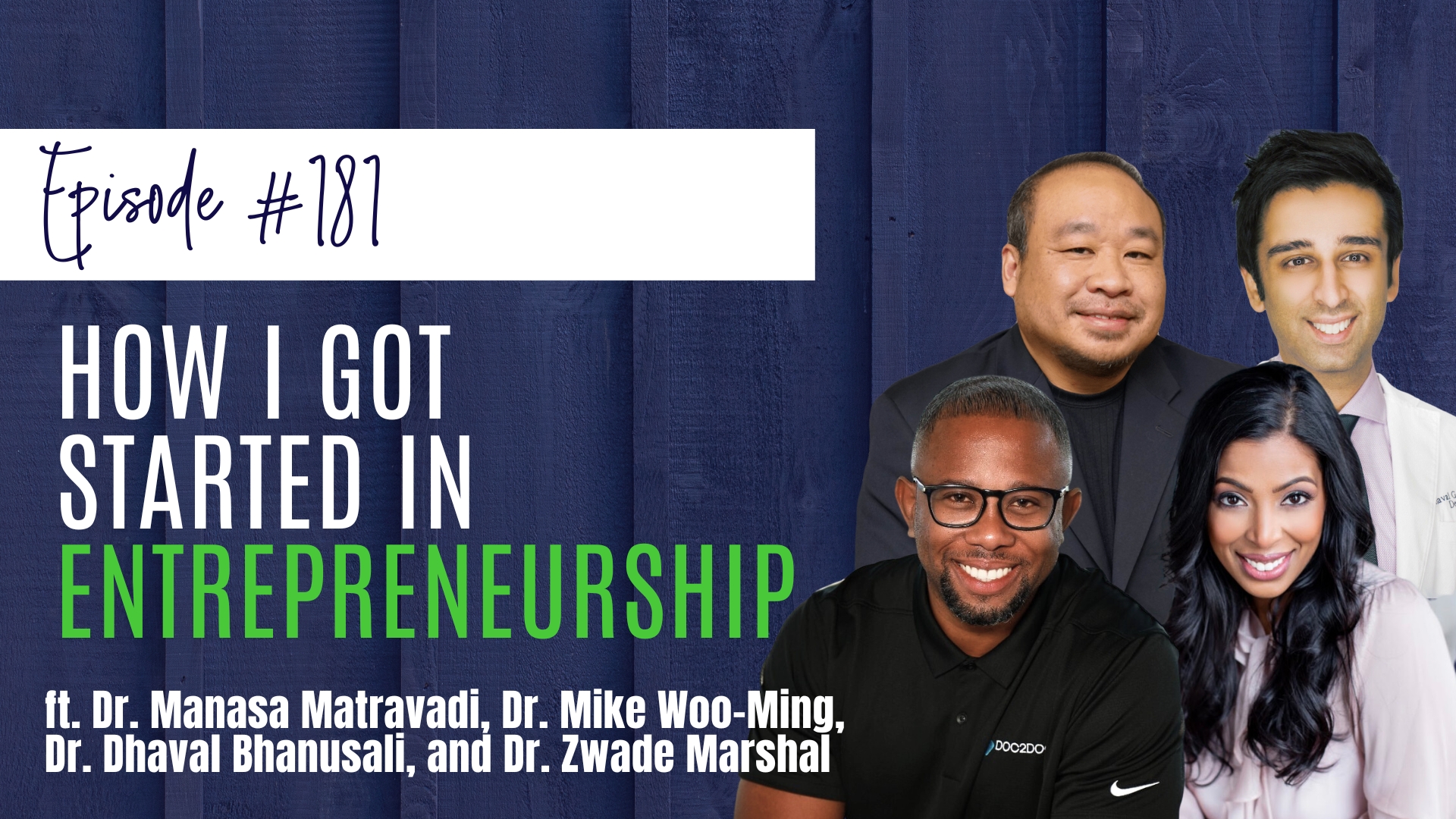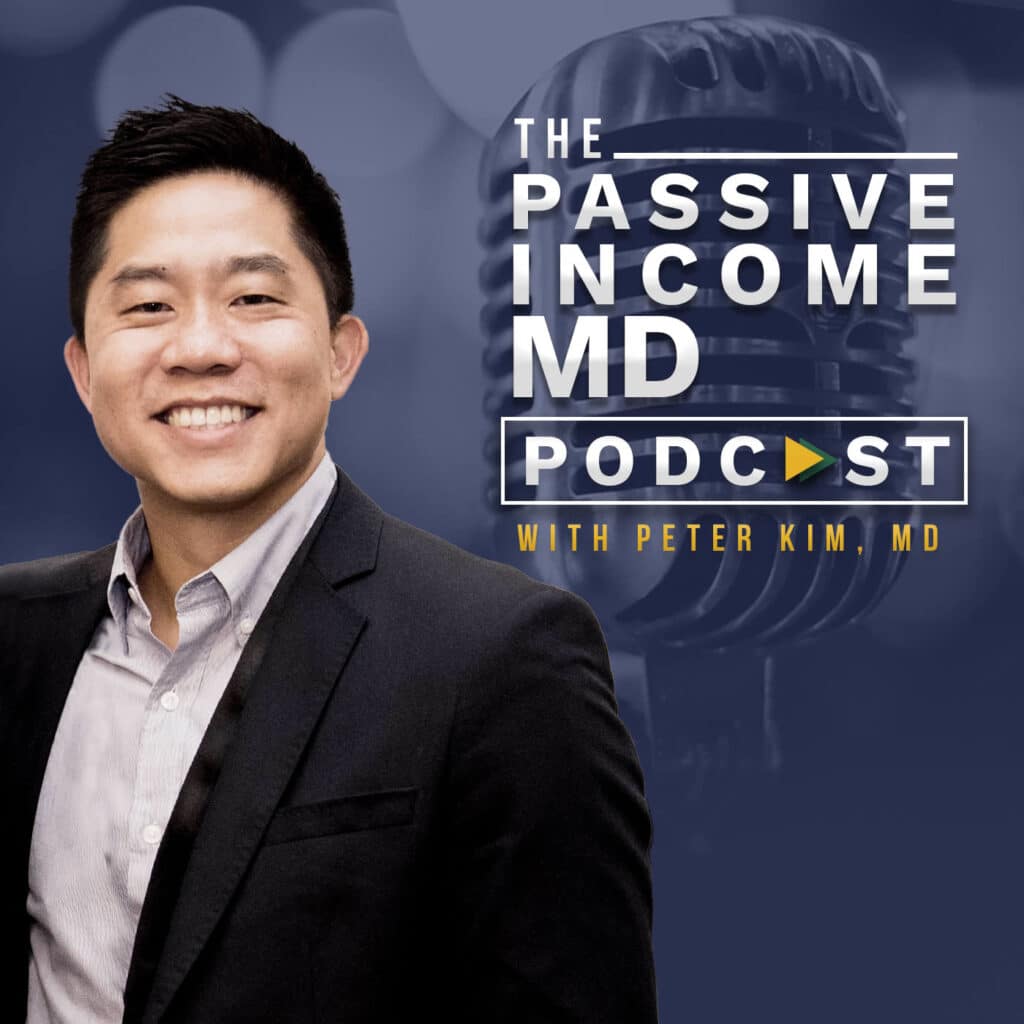
#181 How I Got Started in Entrepreneurship, ft. Dr. Manasa Matravadi, Dr. Mike Woo-Ming, Dr. Dhaval Bhanusali, and Dr. Zwade Marshall.
In this episode, our host Dr. Pranay dives into the entrepreneurial journeys of Manasa Matravadi, Mike Woo-Ming, Dhaval Bhanusali, and Zwade Marshall. Tune in to get insights on hiring challenges, mastering financing, and leveraging medical expertise for business success.
Are you looking for a community to encourage you as you begin, or want to accelerate your business to the next level? Then join thousands of physicians who share the same journey of creating their ideal lives through multiple streams of income by joining us in our Facebook communities such as Passive Income Docs and Passive Income MD.
 Thank you to MLG Capital for sponsoring this week’s episode…
Thank you to MLG Capital for sponsoring this week’s episode…
For 35 years, MLG Capital has excelled in intelligent real estate investments and building investor relationships. Their funds prioritize diversification, cash flow, and low leverage, offering a robust hedge against inflation. Ideal for medical professionals and other accredited investors seeking stability amid market volatility. Making smart, relationship-driven investments.
Episode Highlights
Now, let’s look at what we discussed in this episode:
- Introducing the Panelists
- Venturing Outside of Medicine
- Taking the Next Step
- Where to Start With
- How to Find the Right People
Here’s a breakdown of how this episode unfolds.
Episode Breakdown
Introducing the Panelists
Our host Dr. Pranay Parikh introduces the panelists for “How I Got Started in Entrepreneurship”.
They are Manasa Matravadi, Mike Woo-Ming, Dhaval Bhanusali, and Zwade Marshall. Together, they will be sharing stories on how they started their entrepreneurial journey, giving you some tips and insights that you can apply as you journey with yours.
Venturing Outside of Medicine
Dr. Pranay Parikh asked our guests the question, “When did you feel? Or did you realize that you need to do something outside of medicine?”
Manasa, driven by a concern over plastic’s harmful effects on children’s health, noticed a market gap between medical recommendations and available products, leading her to start a business offering safer alternatives.
Dhaval’s entrepreneurial spark was ignited by his frustration with the high cost of medications in the medical field, motivating him to seek affordable solutions, which marked his entry into entrepreneurship.
Zwade faced challenges in accessing capital as a doctor, despite a good repayment capacity among medical professionals. This hurdle led him to start a business that facilitates reasonable loans from doctors to doctors, showcasing superior repayment rates.
Mike transitioned from medicine to entrepreneurship due to burnout and later re-engaged with medicine through consulting. Encountering a client’s potential retraining ordeal motivated him to maintain an active medical license, eventually starting a practice that expanded services based on audience trust and interest, reflecting the importance of a supportive audience in entrepreneurial success.
“There was such a disconnect between what we were recommending as a medical community and what like industry was offering for these families. I just felt like I had to do something thing. That’s why I did it.” — Manasa Mantravadi, MD.
Taking the Next Step
Pranay follows up with the question, “How did you learn to do things? How did you take the next step?”.
Manasa emphasizes the lack of supportive entrepreneurial communities and resources in her initial business journey, contrasting it with the structured pathway in medicine. She advocates for others to seek out communities and knowledge-sharing platforms to alleviate challenges and expedite success in entrepreneurship.
Dhaval recounts the “running in the mud” phase of starting a business, stressing the importance of perseverance through slow progress. He advises delegating tasks outside one’s expertise to maximize personal skills and time, sharing the satisfaction derived from seeing one’s business grow past the initial hurdles.
Zwade discusses the anxiety of funding a startup, especially when considering asking peers and family. By self-funding the initial phase and investing in a solid company infrastructure, he managed to build trust with investors, attributing this trust to the rapid growth of his business.
Mike reflects on the demanding lifestyle in corporate medicine, which led him to explore entrepreneurship. He underscores the value of mentorship in navigating alternative career paths, and critiques the limitations of self-learning through platforms like YouTube alone, advocating for a more guided approach to achieve success in entrepreneurship.
“Back then it was like, I thought, okay, I’d go into medicine, I worked for someplace for 30 plus years with a 401 K. And I said, this isn’t the life for me. So I was willing to, to make a leap, and to see what else was out there.” — Mike Woo-Ming, MD.
Where to Start With
Dr. Parikh probes into the beginning experiences of our guests, asking them the question, “Where did you start with?”.
Dhaval underscores the advantage of utilizing medical knowledge in the skincare industry, setting their brand apart by prioritizing science over mere marketing. He reflects on an interview about a successful skincare brand, showcasing the powerful leverage medical knowledge provides in this sector.
Zwade deliberates on the pros and cons of pursuing an MBA for budding entrepreneurs, noting it as a personal choice rather than a requisite for hard skills. He values the MBA for its networking opportunities, strategic thinking, and leadership skills, despite its cost, and shares how his MBA journey during medical school significantly shaped his business outlook and infrastructure.
Manasa stresses the importance of a strategic outset in business, advocating for initially assuming various roles to garner a holistic understanding of the business operations. She highlights the significance of learning financial and supply chain management alongside regulatory compliance, and shares her strategic hiring decisions to fill expertise gaps, allowing her to focus on critical business areas.
Mike shares the hurdles encountered in hiring, emphasizing the need for a harmonious team environment and a basic understanding of various business facets among business owners. He also discusses the importance of retaining skilled employees and recommends networking as a fruitful avenue to discover valuable talent for the business.
“Once I could see the forest and had a bigger roadmap, and had already done the little things, then it really was a puzzle that started to come together. And I knew where I needed to go next.” — Manasa Mantravadi, MD.
How to Find the Right People
Dr. Pranay invites the guests to reflect by asking them, “How do you find the right people?”.
Mike shares insights on the hiring process, highlighting the challenge of finding dedicated individuals for remote positions. He stresses the importance of understanding candidates’ motivations, fostering a positive team environment, and having basic business knowledge across different areas. Mike views networking as a key resource for identifying and connecting with talented individuals, emphasizing retention of such talent as crucial for business success.
Dhaval advocates for investing in competent talent rather than settling for mediocre employees as a cost-saving measure. He shares a cautionary tale about a hiring decision that led to financial issues, urging others to allocate extra capital toward hiring deserving individuals to avoid similar pitfalls.
Zwade navigates through the intricacies of hiring and firing, emphasizing the importance of clear communication, goal setting, and proper onboarding. He shares a mantra of hiring slowly and firing quickly to ensure a well-suited team. Zwade also discusses the need for managing perceptions as a co-leader and ensuring regular, constructive feedback, especially during termination conversations, aiming for a motivated and rewarded workforce.
Manasa underscores the invaluable benefits of hiring top performers, highlighting the saved time, reduced stress, and increased personal freedom as a return on this crucial investment. Through hiring proficient individuals, Manasa suggests that entrepreneurs can achieve not only financial efficiency but also a higher quality of life.
“This is my vision or dream, but how do I get it to people? And if you can solve step one, and step two, at least you have a plan, then you do it. If not, you just take some extra time to figure that out before jumping fully into it.” — Dhaval Bhanusali, MD.




